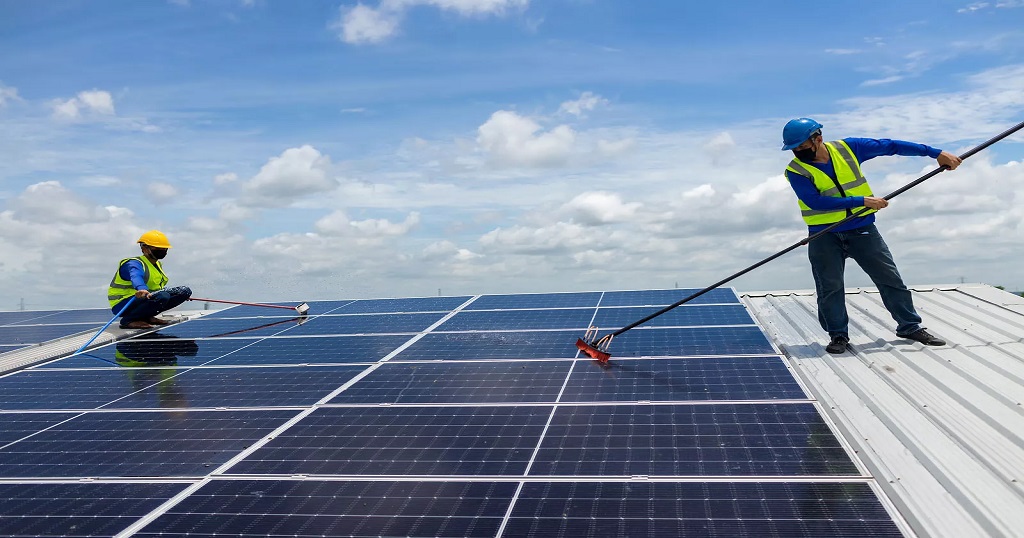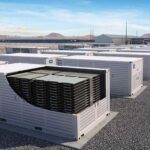Darwin: the jewel of Australia’s Northern Territory, where the sun never takes a day off and every roof screams of solar panels.
However, beneath this tropical heaven lies environmental mischief — scorching heat, sneaky red dust, and salty coastal humidity — all conspiring to turn your shiny solar panels into underperforming paperweights.
In this blog, we are going to understand the impact of dust and debris on the performance of your solar panels and the clever ways in which solar panel cleaning service in Darwin can keep those panels gleaming and working like a dream — ensuring you enjoy optimal energy output.
Understanding Solar Panel Operation
Before we delve into the effects of dust and debris on solar panels, it is critical to understand how solar panels operate.
Solar panels are made up of photovoltaic cells which use the photoelectric effect to transform solar energy into electrical energy.
When the sunlight strikes the panel, a current of energy is produced because the photons in the light energy dislodge electrons from atoms, after being captured, this electricity is used to run residences, industries and enterprises.
Solar energy maintenance in Darwin is very important to ensure these panels work to their utmost efficiency.
Understanding Darwin's Extreme Environment
Darwin isn’t your average sunny locale. It’s a heady mix of tropical bliss and environmental chaos that calls for attention. Here’s the rundown:
Climate Challenges
Scorching Temperatures: Imagine working under a 35°C+ sun, day in and day out. That’s life for solar panels in Darwin. Such heat doesn’t just test the efficiency of photovoltaic cells but can also lead to thermal degradation of components, reducing the lifespan of the panels.
- Dust Storms and Winds: Dust storms originating from the arid outback carry fine particles that cling stubbornly to surfaces. The strong winds amplify this issue, depositing dust even on hard-to-reach areas of solar arrays.
- Coastal Humidity and Salt Spray: Darwin’s proximity to the ocean brings a unique challenge altogether —salt-laden air. This combines with humidity to create a corrosive environment, wreaking havoc on metal components.
Environmental Factors
- Iconic Red Dust: The red dust of Darwin is its iconic signature spice – and it is not kind to solar panels, either. They cling to the solar panels, and their iron-oxide richness causes scratches on the glass surfaces – without proper solar system care in Darwin.
- Birds with Bad Timing: Darwin’s feathered friends contribute more than songs. Their acidic droppings block sunlight and corrode surfaces.
- Vegetative Debris: In suburban areas, leaves, pollen, and organic debris from tropical vegetation further contribute to soiling
- Salt Crystallisation: During the dry season, salt settles on the solar panels and hardens into a crusty layer that refuses to budge. Over time, without solar panel cleaning service in Darwin, these particles crystallise, which makes them harder to remove and increases their potential to scratch surfaces.
Impact of Dirt and Debris On Solar Panels
When it comes to the effects of dirt and debris, they go beyond the surface-level soiling – sneakily sabotage their efficiency at a molecular level.
Soiling and Sunlight Obstruction
Dust scatters sunlight, which reduces energy absorption by up to 20%. Oh, and it also makes panels more reflective—because, of course, sunlight needs yet another excuse to bounce away.
Even the thin layers of the dust cause partial shading. This is particularly harmful in panels that use series-wired cells because shading one cell can impact the performance of the entire string.
Localised Damage from Bird Droppings
Bird droppings are more damaging than they appear. The uric acid content in droppings reacts with the panel’s surface coatings, causing permanent marks and structural weaknesses.
Bird droppings create areas of localised shading, which not only reduces efficiency but can cause hotspots that damage cells by overheating.
Accelerated Corrosion from Salt Spray
Salt particles, when combined with humidity, create a conductive pathway for electricity. This causes short circuits and accelerated wear of metal frames and connectors.
Over time, salt particles burrow through coatings and unleash pitting corrosion, leaving panels vulnerable to more damage.
Mechanical Stress from Wind Erosion
Fine dust carried at high speeds acts like sandpaper, gradually wearing down glass coatings.
Prolonged exposure to high winds can loosen bolts and mounts, while extreme events risk complete panel dislodgement.
Preventive Measures Against Dust and Debris on Solar Panels
Darwin solar panel maintenance from dust and debris requires a multifaceted approach. Proper placement of the panels can significantly reduce the accumulation of dust. Also, installing windbreakers and installing panels at an appropriate angle can help minimise dust deposition.
With the advancement of technology, now you have self-cleaning solar panels — where they are built in a way that repels dust and debris, reducing the need for regular cleaning altogether.
Regular Cleaning Protocols
In addition to preventive measures, you need regular solar panel cleaning service in Darwin to maintain the efficiency of your solar panels. Professional solar panel cleaning NT will remove the dust, debris and contaminants to ensure maximum sunlight absorption.
Therefore, it is always recommended to hire the best solar panel cleaning service in Darwin, like Oneroof Solar, for thorough and safe maintenance.
Read more- Is Now the Right Time to Go Solar in Alice Springs? Exploring Rebates and Benefits







